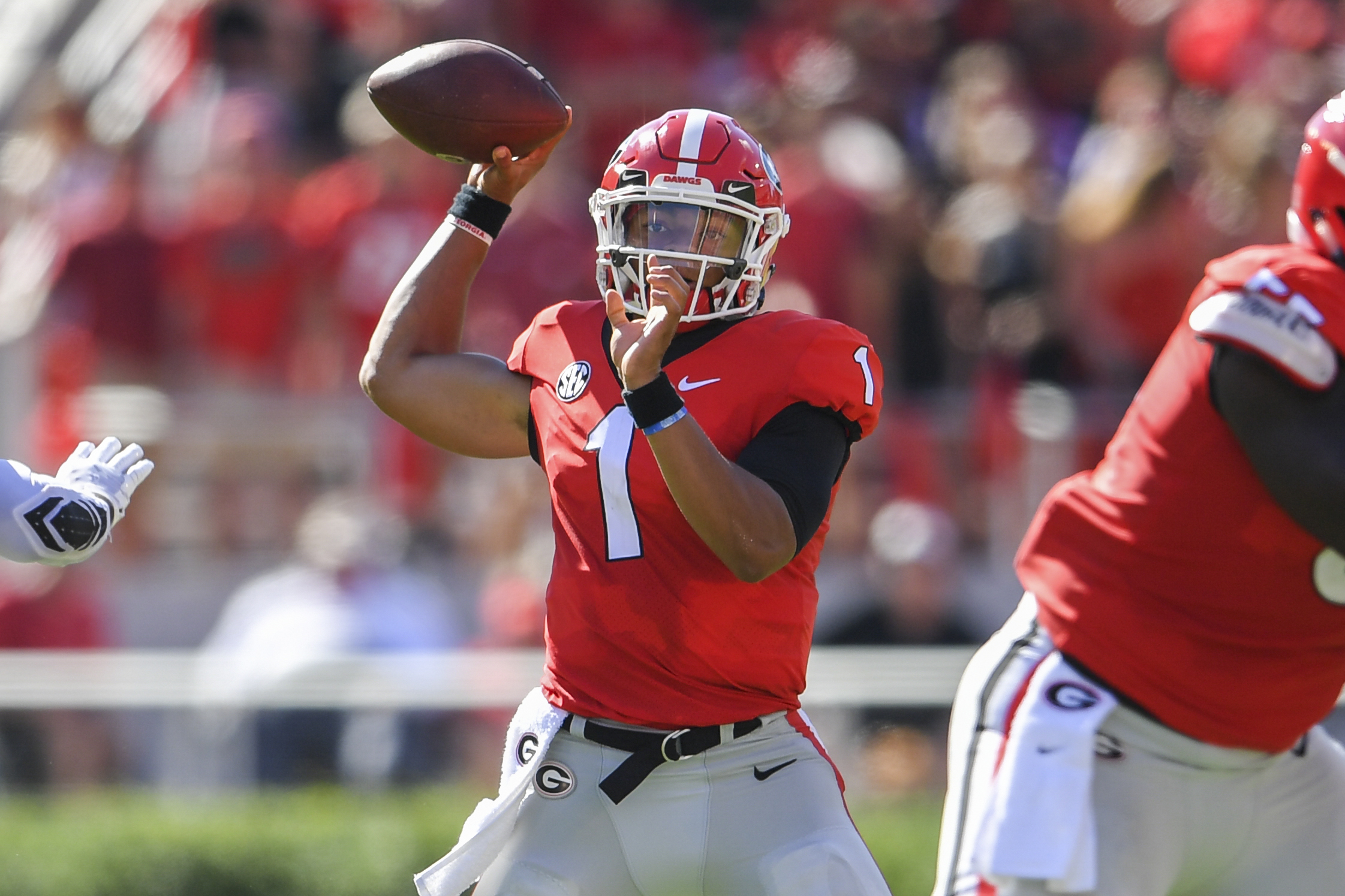Ad Disclosure

One instance showed why it seems inevitable that Justin Fields will be granted immediate eligibility
I’m not here to diminish racism.
Not to get all preachy, but it obviously doesn’t have any place in our society. As a white male, I’ve never dealt with racial slurs directed my way. At least not to my knowledge.
That’s worth prefacing for this discussion, and really any discussion as it relates to Justin Fields’ hardship waiver to the NCAA for immediate eligibility in 2019. Whether or not you believe that the racial slurs from a Georgia baseball player directed at Fields during the UGA-Tennessee game was why he left Athens, it’s very much going to be at the forefront of this storyline.
Civil rights activist Al Sharpton reminded us why that’ll be the case on Sunday night when he went on MSNBC and talked about Fields’ case.
“I wonder if any in the NCAA has suffered the humiliation of being top-rated, good at what you do, but no matter what you do being called a racial name…what it does to your skills, your character, what it does to your mind,” Sharpton said on MSNBC. “I would hope the NCAA realizes that to take him off the field a year for transferring because of racism is in many ways to cosign the insults that he’s had to endure.”
That right there shows exactly why I’m extremely confident that Fields will ruled eligible to play immediately in 2019.

For now, let’s move past the debate of “should all college athletes be eligible to play immediately after transferring.” Let’s instead just break down the basic rules and the loopholes around them.
Fields is being represented by Thomas Mars. Last year, Mars represented Shea Patterson in his case to be granted immediate eligibility after transferring from Ole Miss to Michigan as an undergraduate student. As we found out, Mars was pretty good at beating the system. Mars got Patterson and other outgoing Ole Miss players immediate eligibility for citing the NCAA rule that waives the 1-year transfer waiting period if there’s documented evidence of “egregious behavior” at their former university that negatively affected the student-athlete.
Something tells me Mars will force the NCAA to adhere to that rule again. Why? The last thing the NCAA wants is to do is come off as insensitive to racial injustice. That would be a public relations disaster. If you thought it wasn’t well-liked before, just wait until the NCAA tells a high-profile black quarterback that leaving school because of racism isn’t a strong enough reason to be granted immediate eligibility.
The amount of backlash from activists like Sharpton and would turn into a massive national story. And for what? All because you want to make a kid sit out a season?
Call me crazy, but I think the NCAA is a little more self-aware than that. It has to be. The path of least resistance is letting Fields play immediately and not opening up an even bigger can of worms.
And if the NCAA does grant Fields immediate eligibility, it does at least have some precedent that would prevent random college athletes from claiming racism — and not them being backups — was why they transferred. The Georgia baseball player who shouted the racial slur was kicked off the team. That’s a fact. To be honest, that’s probably what’s going to make this such a difficult thing for the NCAA to get past, even if it sees what everyone else does.
That is, Fields would still be at Georgia if he was the starting quarterback in 2019. In all likelihood, though, he’ll be the starting quarterback at Ohio State in 2019.
Still, Ryan Day isn’t counting his chickens before they hatch. That’s why it made sense that the Buckeyes were reportedly interested in Texas A&M graduate transfer Nick Starkel. As we know, Tate Martell’s transfer to Miami (FL) after Fields’ arrival means the Buckeyes have virtually zero depth at the position. If the NCAA does say no to Fields, the Buckeyes are going to be scrambling for a grad transfer quarterback for the next few months.
Even if Fields gets immediate eligibility, I wouldn’t be surprised if Ohio State tried to add another quarterback. That’s my way of saying, no, I don’t think the Starkel news means that the Buckeyes are fearing the worst with Fields’ case.
Mars said that he expects to hear a ruling by February. We’ll see about that considering Patterson had to wait until after spring camp to get his ruling, albeit with different surrounding circumstances.
Whenever the ruling comes, I expect it to favor Fields. What if it doesn’t, you ask?
Well, that’s a slippery slope that the NCAA is going to slide down in a hurry.
Connor O'Gara is the senior national columnist for Saturday Tradition. He's a member of the Football Writers Association of America. After spending his entire life living in B1G country, he moved to the South in 2015.